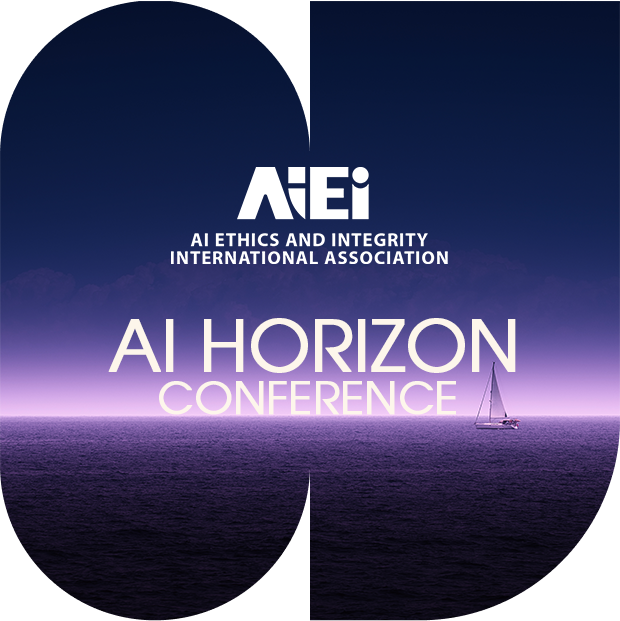The Power of Associations: How AI Ethics Groups are Shaping the Future of Responsible AI

Can AI be ethical without external oversight? This question becomes more pertinent as AI technology affects nearly every aspect of our lives. From healthcare to law, AI is playing a transformative role. However, concerns about bias, transparency, and accountability are also rising. So, at this point, AI ethics groups and associations such as the AI Ethics and Integrity International Association (AIEI) come into play, providing vital oversight to ensure that AI systems are developed and deployed responsibly.
Why We Need AI Ethics Associations
AI’s rapid evolution offers enormous benefits but poses significant ethical risks. Without external oversight from AI ethics associations, there’s a notable danger that AI could be misused, leading to unintended harmful consequences. Ethical oversight ensures that AI technologies respect human rights, maintain fairness, and avoid exacerbating inequalities.
Research conducted in 2023 by the World Economic Forum emphasized the growing demand for ethics bodies that can provide neutral governance and mitigate risks. The study found that AI ethics groups play a crucial role in ensuring accountability, as their frameworks often serve as the backbone for national and corporate AI policies. These associations push for guidelines and standards prioritizing transparency, fairness, and privacy, ensuring that AI systems operate within established ethical boundaries.
One of the most notable contributions of AI ethics associations is their ability to challenge corporations and governments to address prejudgment and discrimination within AI systems. For instance, associations have been critical in halting the use of biased hiring algorithms and facial recognition systems, particularly in law enforcement, where concerns over racial profiling were raised. These organizations work as independent watchdogs, holding companies and governments accountable for using AI responsibly.
Case Studies of Success
There are many examples where AI ethics associations have successfully influenced significant policy decisions and corporate behavior. One such case is the EU’s General Data Protection Regulation (GDPR), which established comprehensive data privacy regulations partly driven by AI ethics groups’ advocacy. These groups ensured that the GDPR included strong provisions regarding automated decision-making, helping to protect consumers from being unfairly treated by AI algorithms.
In the United States, ethics-focused organizations have been vocal in shaping legislation like the Algorithmic Accountability Act, which mandates that companies assess the impact of AI systems on discrimination and privacy. These successes highlight the critical role that AI ethics associations play in shaping regulations that prevent AI technologies from causing harm. Additionally, AI ethics groups have collaborated with corporate partners to develop industry-wide frameworks that address AI’s ethical implications. For example, ethical associations have pushed for more transparent AI systems in the hiring sector, ensuring hiring algorithms are free from biases that disproportionately affect marginalized groups. This is a significant step forward in creating equitable AI systems that do not perpetuate existing societal prejudices.
One example is recent European Young Bar Association (EYBA) research. Back in May 2024, they launched a comprehensive survey to explore the impact of Artificial Intelligence on the legal profession, mainly focusing on young lawyers. Representatives from over 15 countries participated in the European Young Bar Association’s survey. The EYBA survey aimed to examine the impact of artificial intelligence on the activities of young lawyers and gather a wide range of perspectives on the utilization and influence of AI within the legal profession. By understanding these viewpoints, they aim to provide a comprehensive overview of how AI shapes the future of legal practices for emerging professionals. Among the key findings were that 48.7% of respondents believe AI can partially replace lawyers, while 38.5% are skeptical. Many see AI as a valuable tool for automating specific tasks. Also, popular tools among young lawyers include ChatGPT, Perplexity, Gemini, and Copilot. Additionally, participants highlighted issues such as the reliability of AI-provided information, data security, contextual understanding, ethical considerations, and the impact on the legal profession’s future.
AIEI’s Impact
The AI Ethics and Integrity International Association (AIEI) is a newer player in this field but is rapidly gaining recognition for its proactive initiatives. Unlike more established associations, AIEI is uniquely positioned to address modern challenges in AI ethics by fostering a global framework for ethical AI use across industries. Their work focuses on establishing industry-wide certifications, which help companies align their AI technologies with ethical guidelines.
AIEI also emphasizes collaboration between technologists, regulators, and users. By facilitating open dialogue among these stakeholders, AIEI is working to create a more transparent AI ecosystem where ethical considerations are a fundamental part of development. Through workshops, policy discussions, and collaborative initiatives, AIEI ensures that ethical AI development is not just a theoretical concept but a practical reality.
One of the critical components of AIEI’s approach is its global focus. Recognizing that AI transcends national boundaries, AIEI advocates for a unified ethical framework that can be applied across different jurisdictions. It is essential as AI technologies are often developed in one country but used globally. AIEI’s work ensures that ethical standards for AI are maintained consistently, regardless of where the technology is deployed.
The Path Forward
The future of AI will depend on how effectively ethical frameworks are integrated into its development and use. Organizations like AIEI are critical to this mission. However, these associations need widespread support from industries, governments, and the public to continue their essential work. Joining and actively participating in AI ethics associations can provide stakeholders with the tools and knowledge needed to navigate the complexities of ethical AI.
By supporting associations like AIEI, we ensure that AI development remains aligned with societal values, protecting human rights and ensuring equitable outcomes. As AI continues to advance, so too must our efforts to embed ethical considerations into every aspect of its development and use
In conclusion, AI ethics associations are not just a support system for responsible AI—they are the foundation for ethical AI development. As we move forward in this new era of technological innovation, we should prioritize and support these organizations. Only through their efforts can we ensure that AI is a force for good in the world, benefiting everyone rather than causing harm.
References
- AI Ethics in the Public, Private, and NGO Sectors: A Review of a Global Document Collection. Retrieved from https://www.researchgate.net/publication/349856215_AI_Ethics_in_the_Public_Private_and_NGO_Sectors_A_Review_of_a_Global_Document_Collection/fulltext/6419eaef315dfb4cce9a42a0/AI-Ethics-in-the-Public-Private-and-NGO-Sectors-A-Review-of-a-Global-Document-Collection.pdf
- Leveraging Professional Ethics for Responsible AI. Communications of the ACM. Retrieved from https://cacmb4.acm.org/magazines/2024/2/279524-leveraging-professional-ethics-for-responsible-ai/fulltext
- European Young Bar Association (EYBA). (2024). EYBA Survey Results on Artificial Intelligence 2024. Retrieved from https://eyba.org/eyba-survey-results-on-artificial-intelligence-2024
AI Horizon Conference
The AI Horizon Conference brought together entrepreneurs, investors and industry leaders in Lisbon to discuss key trends and shape the future of AI.

 Bern
Bern
 Lisbon
Lisbon
 New York
New York

